Publications
Articles, publications, books, tools and multimedia features from the U.S. Institute of Peace provide the latest news, analysis, research findings, practitioner guides and reports, all related to the conflict zones and issues that are at the center of the Institute’s work to prevent and reduce violent conflict.
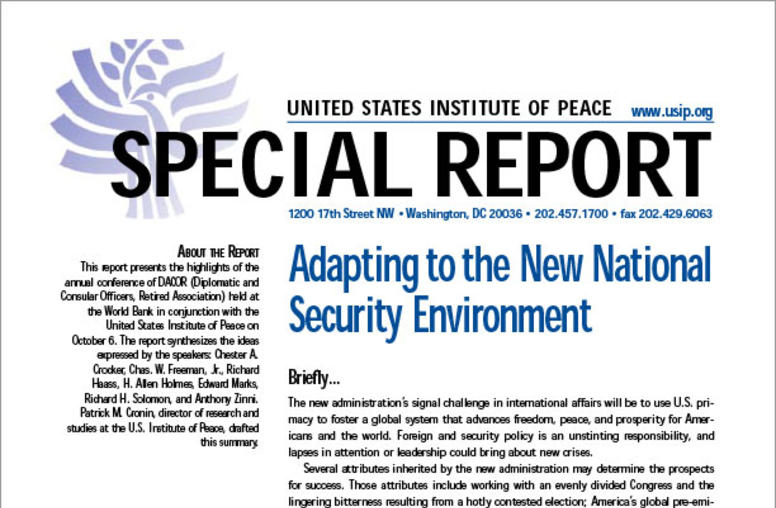
Adapting to the New National Security Environment
Summary The new administration's signal challenge in international affairs will be to use U.S. primacy to foster a global system that advances freedom, peace, and prosperity for Americans and the world. Foreign and security policy is an unstinting responsibility, and lapses in attention or leadership could bring about new crises. Several attributes inherited by the new administration may determine the prospects for success. Those attributes include working with an evenly divided Congres...
Commission of Inquiry: Côte d’Ivoire
Commission of Inquiry: Mediation Committee for National Reconciliation Duration: 2000 – 2001 Charter: Presidential Decree Commissioners: 28 Report: No report
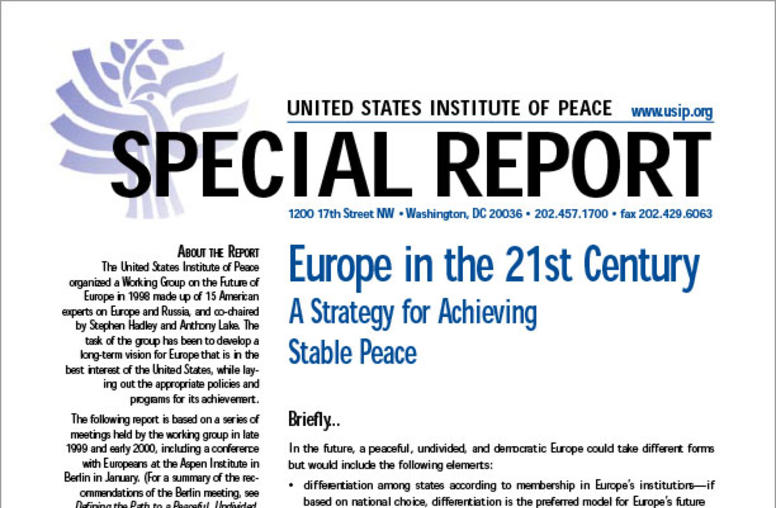
Europe in the 21st Century: A Strategy for Achieving Stable Peace
Summary In the future, a peaceful, undivided, and democratic Europe could take different forms but would include the following elements: differentiation among states according to membership in Europe's institutions--if based on national choice, differentiation is the preferred model for Europe's future a stable peace among European states the integration of Russia into Europe a more equal relationship between the European Union and the United States in European affairs and gl...
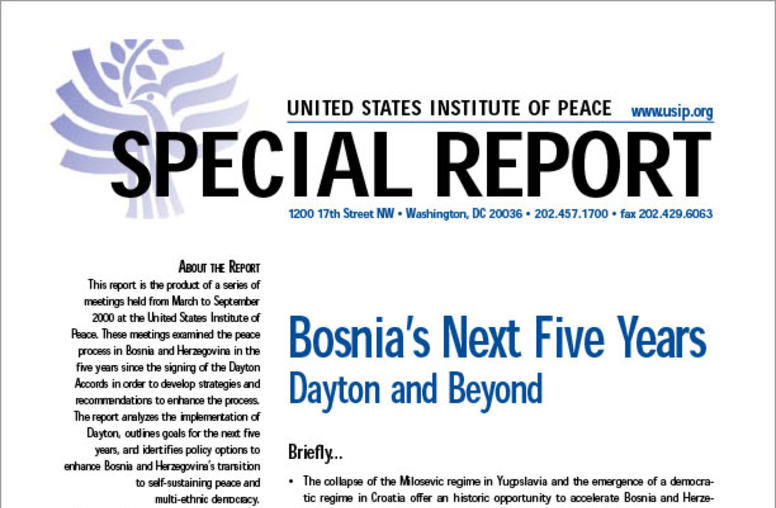
Bosnia's Next Five Years: Dayton and Beyond
The Dayton Upgrade Project at the United States Institute of Peace held a series of meetings to examine the peace process in Bosnia in the five years since the signing of the Dayton Accords. Subjects addressed included post-war security structures in Bosnia, institution building, economic restructuring, ethnicity, and nationalism.
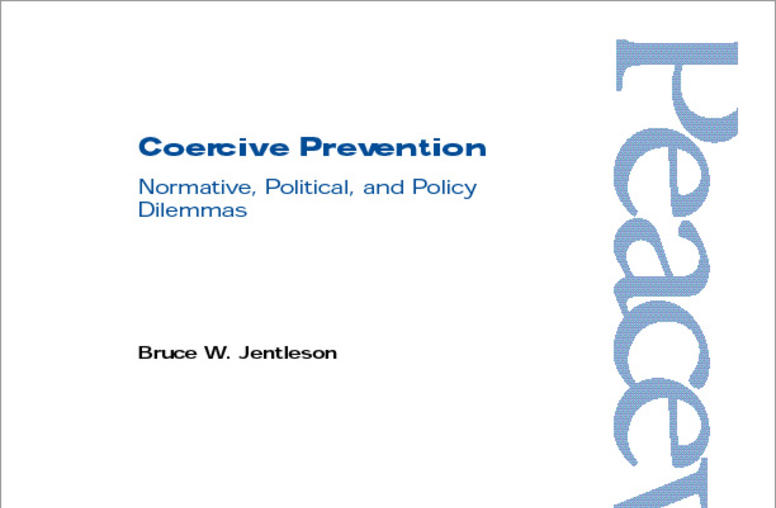
Coercive Prevention: Normative, Political, and Policy Dilemmas
For all that has been proclaimed about the importance of preventive diplomacy, the reality of international action falls far short. This report focuses on one particular aspect of this agenda, namely, the need to take a harder look at "coercive prevention," and particularly at the threat or use of military force as frequently necessary parts of overall preventive strategies. This is a very different approach from versions of preventive diplomacy that make its noncoercive nature a defining pa...
Truth Commission: South Korea 2000
Truth Commission: Presidential Truth Commission on Suspicious Deaths Duration: 2000 – 2004 Charter: The Special Act to Find the Truth on Suspicious Deaths Commissioners: 9 for each of two terms Report: Public report
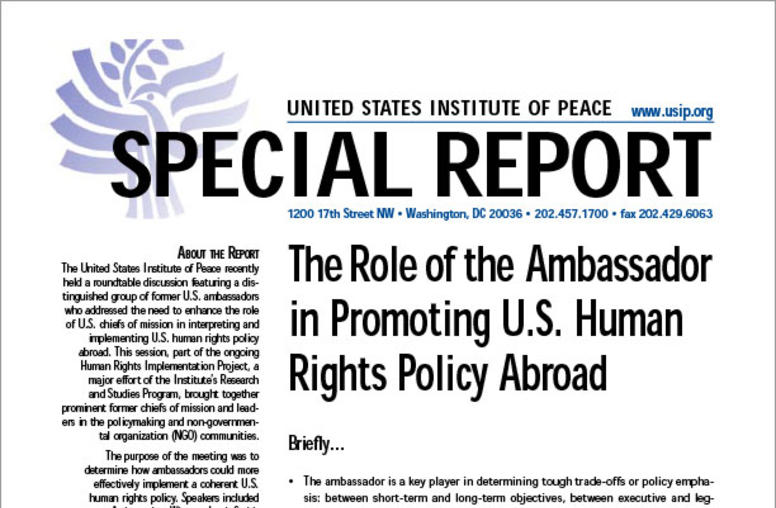
The Role of the Ambassador in Promoting U.S. Human Rights Policy Abroad
Summary The ambassador is a key player in determining tough trade-offs or policy emphasis: between short-term and long-term objectives, between executive and legislative priorities, between strategic interests and specific human rights concerns, between public and private diplomacy, between coercive and cooperative approaches, and between unilateral and multilateral approaches to specific problems.
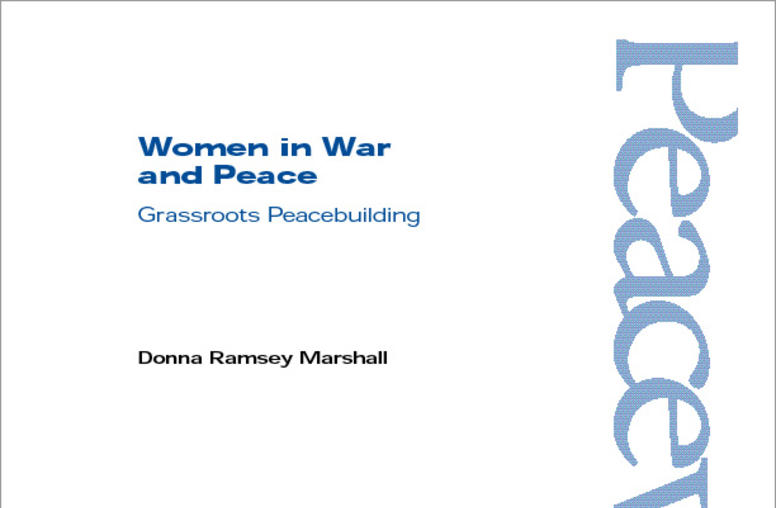
Women in War and Peace: Grassroots Peacebuilding
While much of the work of conflict resolution focuses on the government or public level, the resolution of contemporary conflict is very much a holistic process that is simultaneously conducted at the private, grassroots level. Many of the efforts under way to sustain peace in countries and regions beset by or emerging from violent conflict are undertaken by grassroots organizations formed by those whose lives are most directly and significantly affected by the conflict. A substantial proport...
Truth Commission: Uruguay
Truth Commission: Commission for Peace Duration: 2000 – 2002 Charter: Resolución de la Presidencia de la República No. 858/200 Commissioners: 6 Report: Public report
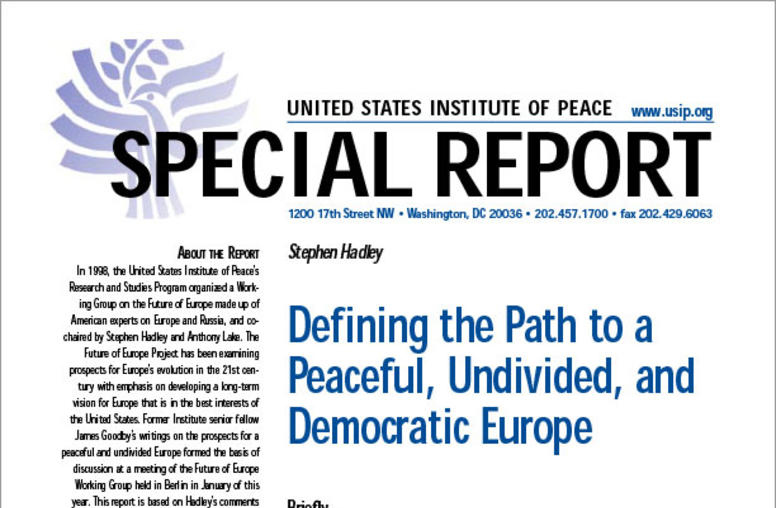
Defining the Path to a Peaceful, Undivided, and Democratic Europe
Summary A peaceful and undivided Europe must include both the United States and Russia if it is to be stable and successful over time. The United States wants a Europe that is a reliable strategic partner in trade and security issues, both in the region and potentially elsewhere. There can be considerable flexibility of form in the way this "single security community" of Europe arranges itself.